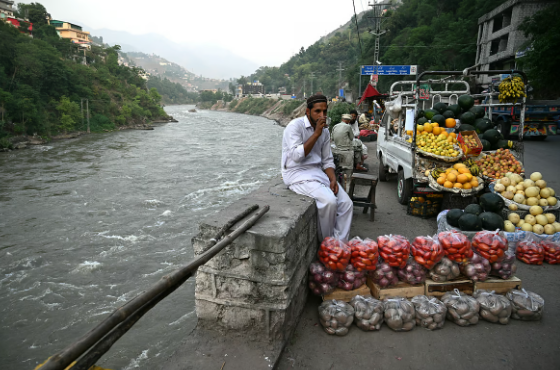Tensions between Pakistan and India flared on Tuesday after Islamabad accused New Delhi of altering the flow of the Chenab River, a key water source allocated to Pakistan under the now-suspended Indus Waters Treaty.
The Chenab, which originates in India and flows into Pakistan, is one of three rivers granted to Pakistan under the 1960 treaty brokered by the World Bank. However, India announced it was suspending its participation in the agreement following a deadly attack in Indian-administered Kashmir on April 22 that left 26 people dead. Since then, Pakistani officials claim, the river’s flow has changed dramatically.
“We have witnessed changes in the river (Chenab) which are not natural at all,” said Kazim Pirzada, Punjab province’s irrigation minister. “One day the river had normal inflow and the next day it was greatly reduced.”
Punjab, Pakistan’s most populous province and agricultural hub, relies heavily on water from the Chenab for its crops. Pirzada warned that disruptions to the river’s flow could severely impact regions with limited alternative water sources.
In a statement issued Tuesday, Pakistan’s government warned that tampering with cross-border water resources would be seen as “an act of war.”
According to the Jinnah Institute, a policy think tank based in Islamabad, India released large volumes of water into the Chenab on April 26, only to reduce flows abruptly. The institute claims the move was intended to hinder Pakistan’s ability to utilize the water effectively.
Indian officials have not issued a formal response, but a senior Indian government source told The Indian Express that sluice gates at the Baglihar Dam had been lowered “as a short-term punitive action.” While the Indus Waters Treaty allowed India limited use of the Chenab for hydropower and irrigation, it explicitly forbade altering water flow in ways that affect Pakistan’s share.
Kushvinder Vohra, former head of India’s Central Water Commission, told The Times of India, “Since the treaty is on pause, we may do flushing on any project without any obligation.”
Water experts say that while India cannot permanently block the flow of the Chenab, it can control the timing of releases—enough to disrupt Pakistan’s agriculture. The Jinnah Institute cautioned that even minor delays can upset sowing schedules and reduce crop yields in Pakistan.
The situation adds a new dimension to already strained relations between the nuclear-armed neighbors, raising concerns of further escalation if diplomatic channels fail.


